15 Essential Tools Every Homeowner Must Have
This list of 15 essential tools for homeowners includes both basics and less obvious tools that will come in handy for every household.
We all love the idea of having the essential tools necessary to become a successful do-it-yourselfer around the house. This is primarily because nobody ever really sees their home as complete. According to the New York Post, 57 percent of homeowners feel like their house is still a work-in-progress, and the average homeowner has about nine DIY projects on their to-do list.
To successfully complete all those projects on your DIY list, and handle small repairs that come up along the way, you need the right tools. A basic toolkit, though important, will only get you so far. Invest in something a little larger to store your tools, and upgrade the basics with a few speciality items to become a truly prepared DIYer.
Start with the basics
All your basic tools should fit in a standard toolbox. These are the things that get all the simple home maintenance stuff done, but are also necessary for just about any project.
(1) Hammer and (2) nails
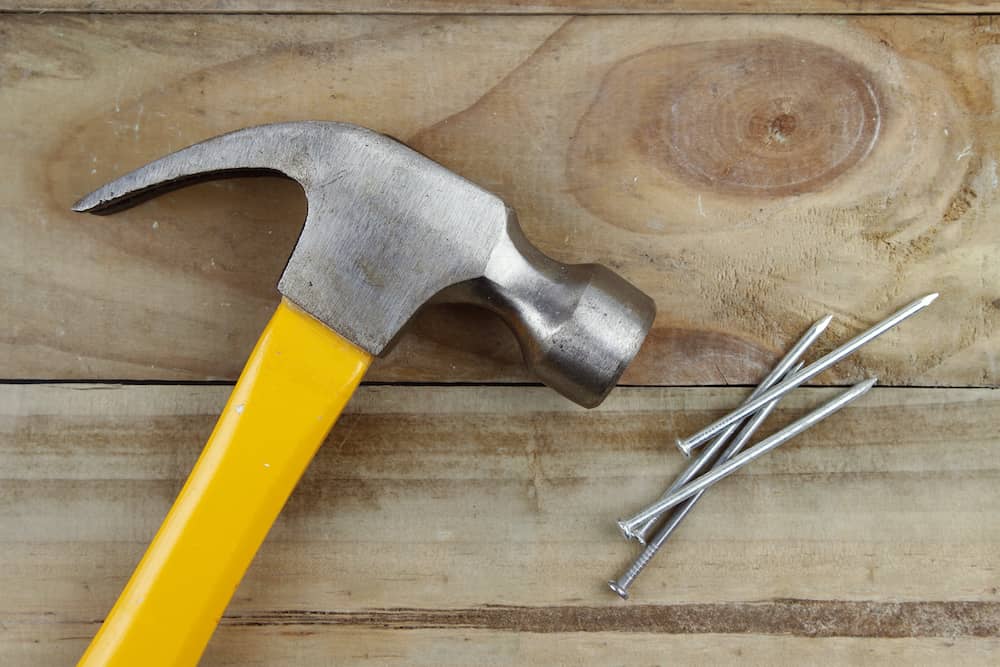
Saying you need a hammer is never specific enough. According to Popular Mechanics, there are almost 24 different types. Some have speciality purposes, so you need to make sure you’ve got the right one for everyday projects. Look for a curved-claw hammer. They’re just as good at pulling nails out as they are at driving them into the wall. You’ll need this dual performance.
When it comes to nails, grab a pack full of assorted sizes so you’ve always got them on-hand. A standard variety pack will cost you less than $5 and they’ll last a long time.
(3) Screwdriver and (4) screws
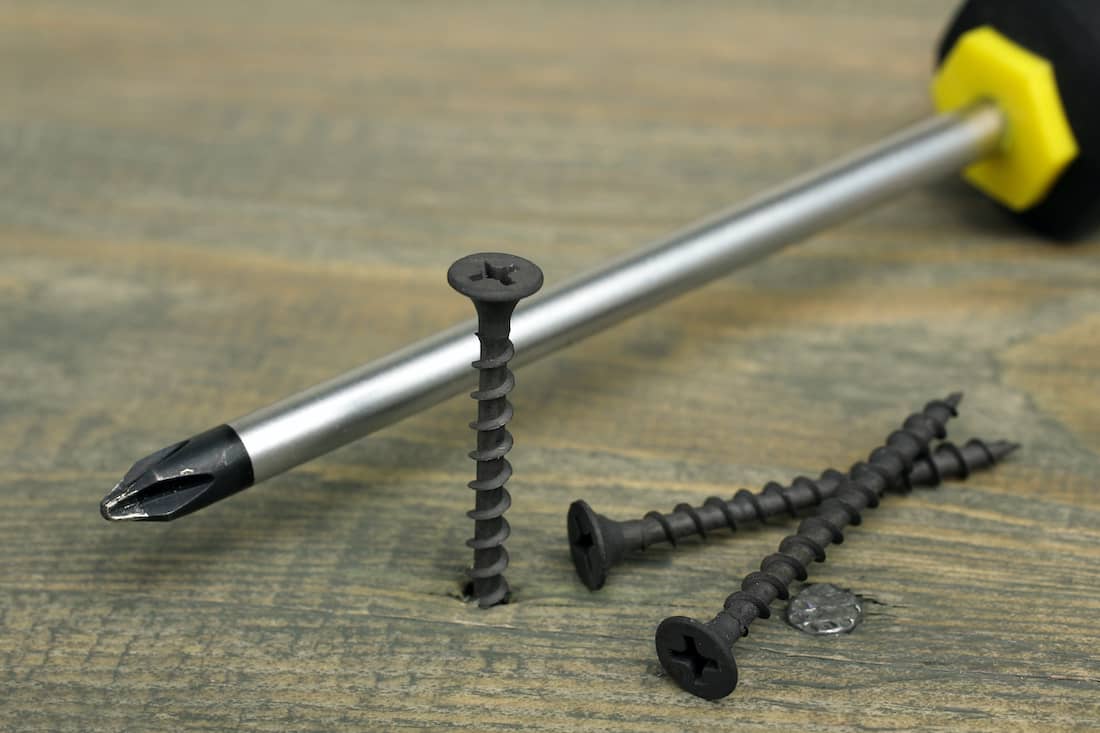
There are two types of screwdrivers – a flat head and a Phillips. Just because you need to have both though, doesn’t mean you need two separate tools. Go for a multi-bit screwdriver where you can swap out the flat head for the Phillips head and be ready for any job. Having two screwdrivers in one also frees up room in your toolbox.
For screws, it’s always a good idea to have a different types and sizes around the house depending on the types of walls and materials you have. Drywall screws, sheet metal screws, and wood screws are a good base that will cover the needs of most homeowners.
(5) Wrench
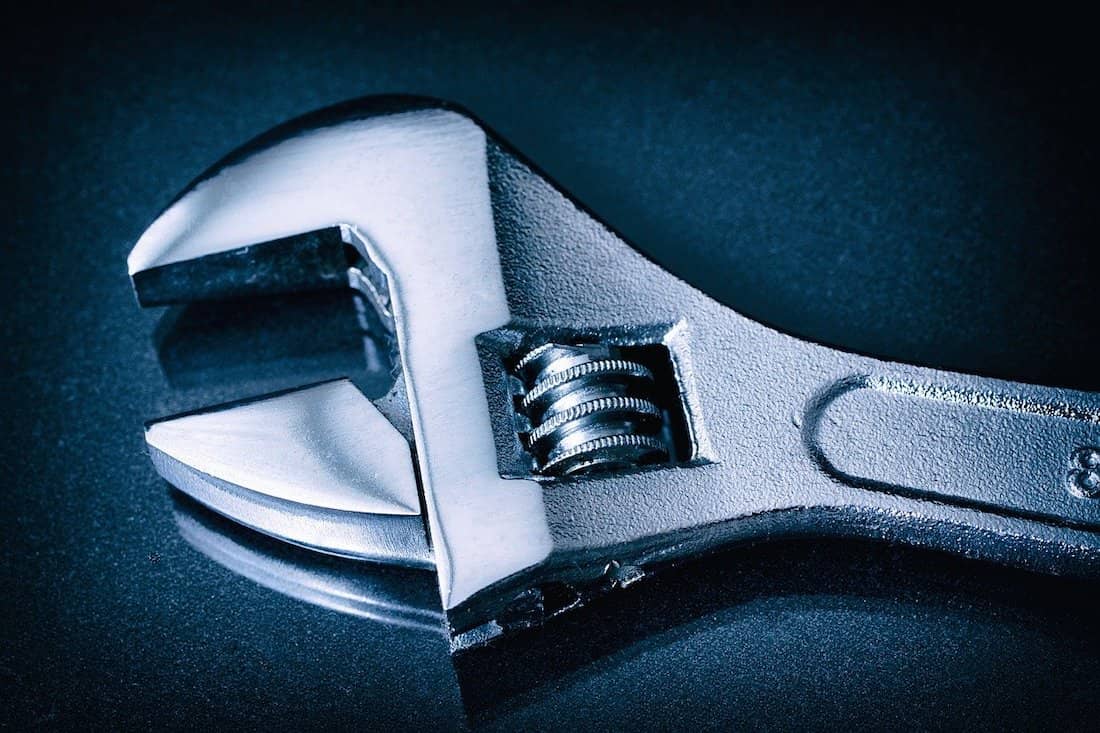
While a wrench definitely belongs in your basic toolkit, it’s not something you’ll use as much as a hammer or screwdriver. The wrench comes out when you notice your first leaky pipe, and want to try and tighten it yourself before calling the plumber. Best to have an adjustable wrench for a one-tool-fits-all option.
(6) Allen wrench
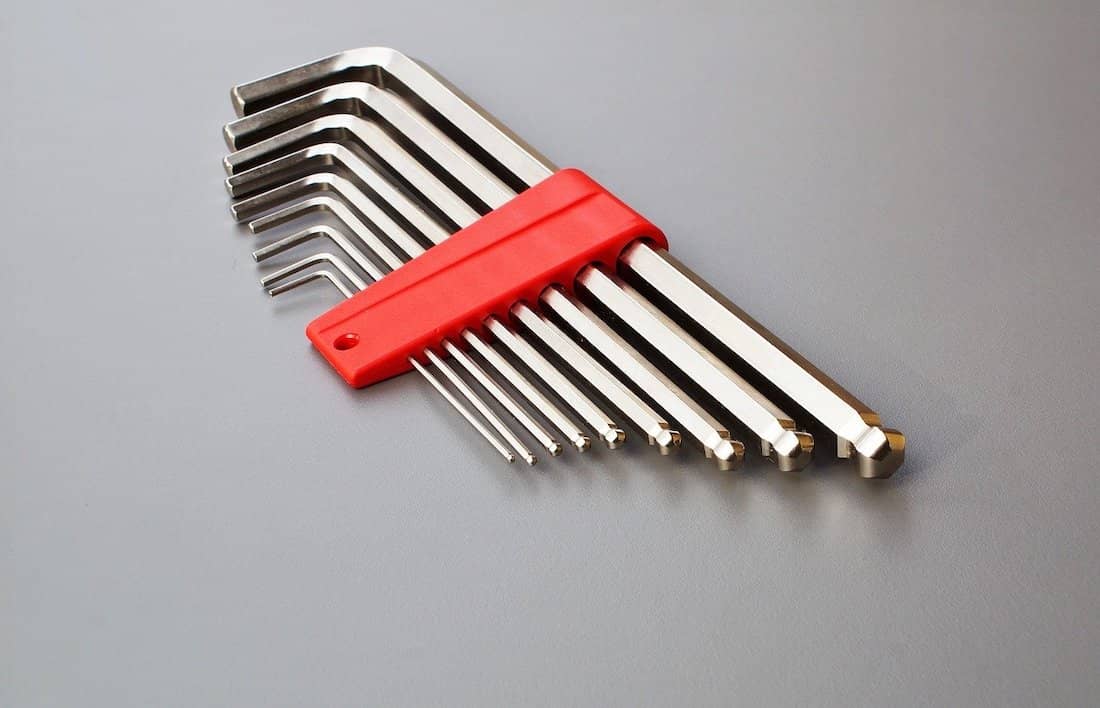
If you’ve ever assembled Ikea furniture, you know what an Allen wrench is. It works like a screwdriver, not like a wrench, in that it fits into the head of a screw. They’re easy to spin, making furniture assembly, or working with set screws super simple.
This comes in handiest when you’re moving in or out of a house. Then, it’s all about furniture assembly (or disassembly,) and that task often requires an Allen wrench.
While there is a standard Allen wrench, it’s better to have a set with a few size options. Even better, if you can find a set with longer and shorter wrenches, tight spots won’t ever be an issue.
(7) Tape measure
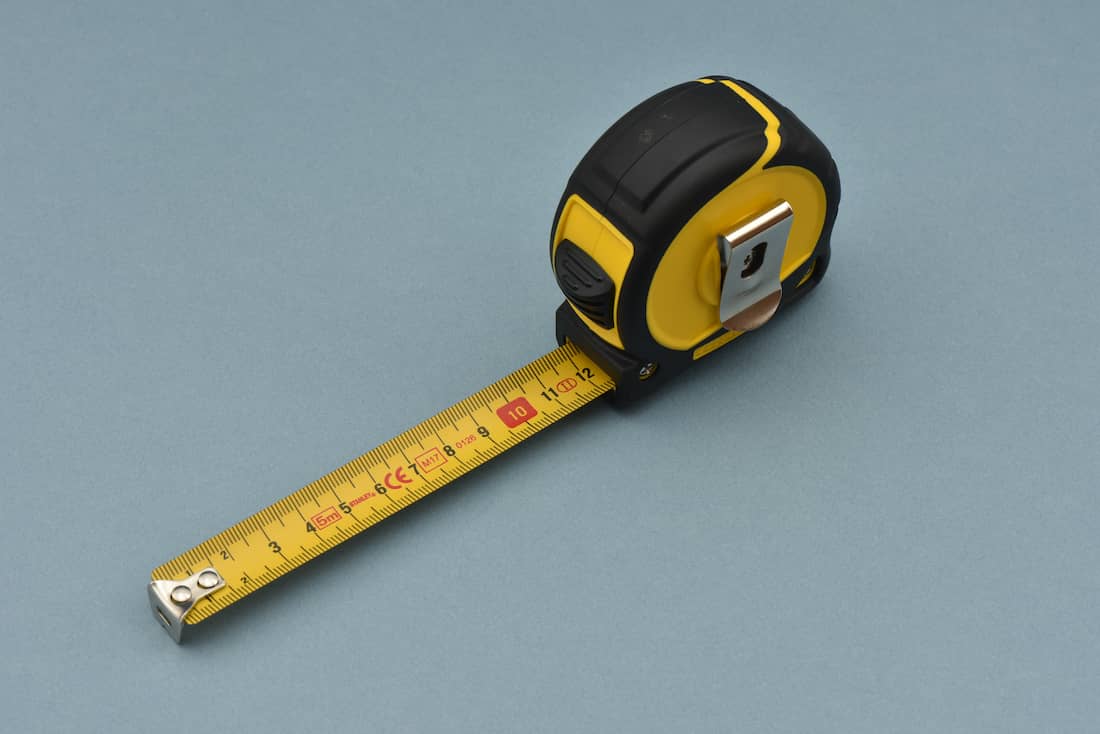
A retractable, locking tape measure will prove so useful over your time as a homeowner. You’ll use it to measure rooms, furniture, and eventually the heights of your kids. It’s a highly useful tool throughout your home. Having the retractable feature means the tape measure is compact and easy-to-store. It also won’t get tangled. The auto-lock makes it possible to freeze your tape measure at a specific length without worrying you’ll lose the measurement before you can write it down.
(8) Utility knife
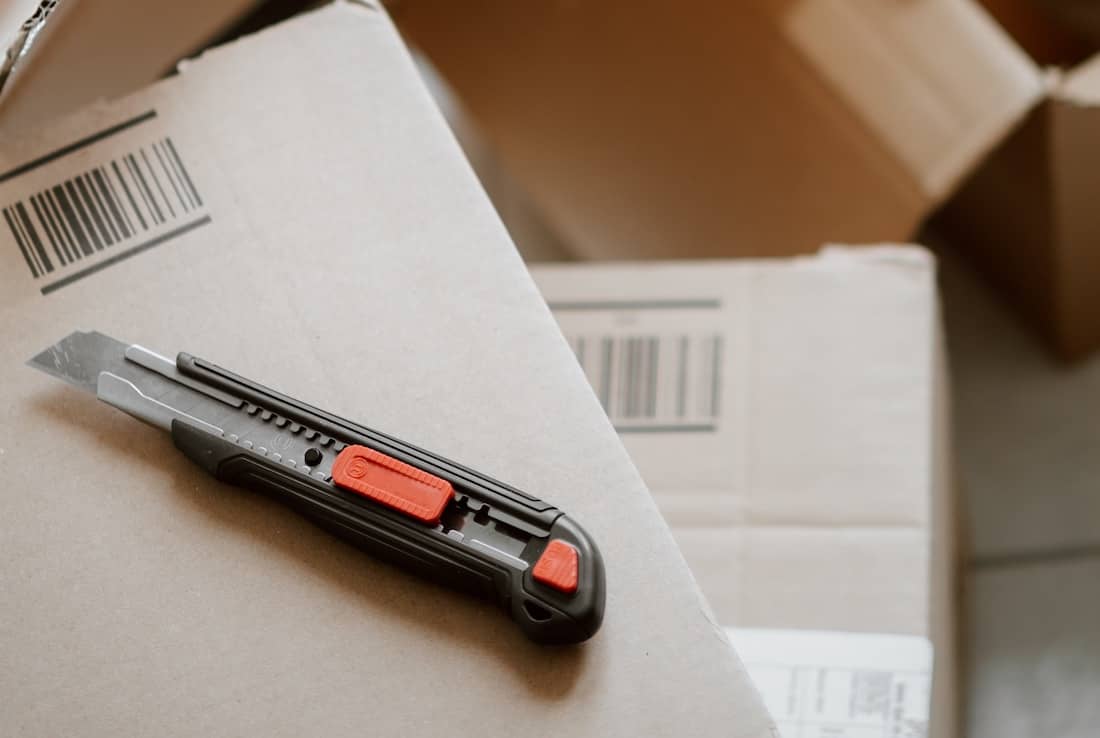
This tool does it all, so of course it belongs in a basic kit. The blade can do something as simple as open Amazon packages, but is also heavy-duty enough for DIY projects. It can cut carpet, scrape paint, and handle most materials in need of a trim.
This tool goes way back, beyond the homeowner’s toolbox. Hunters used utility knives to butcher animals and clean fish. There’s almost nothing this tool can’t do.
(9) LED Flashlight
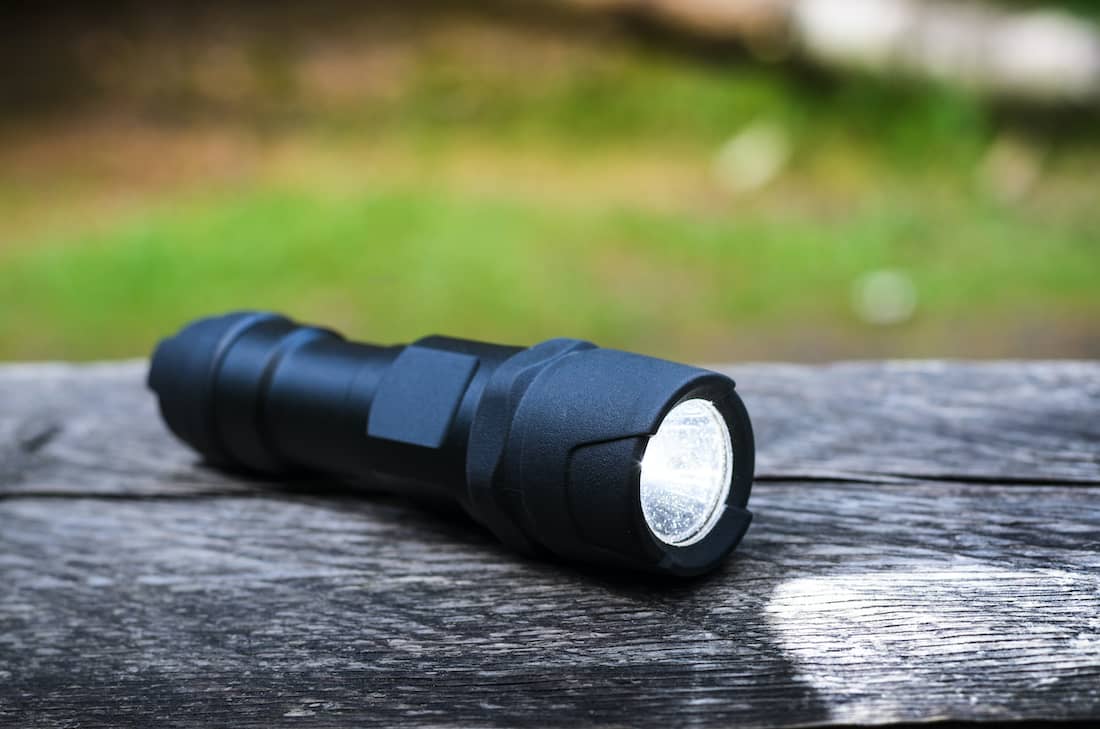
It’s not a tool, we know, but it’s an important addition to your basic toolbox. Often, home maintenance takes you into the dark corners of your home. Having a flashlight beside your tools means you don’t have to wedge your phone into the space, or go looking for your emergency flashlight.
(10) Picture hanging kit
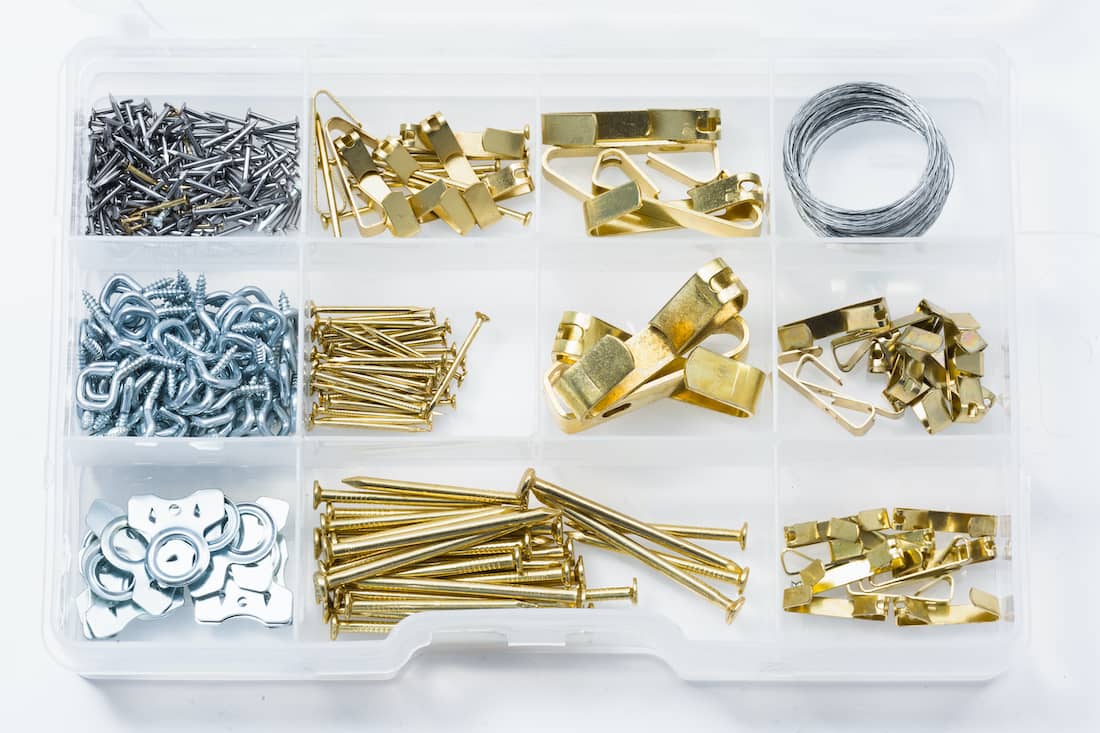
This belongs in your basic toolbox because you’re never going to live somewhere you won’t need to hang stuff on the walls. These materials are about as indispensable as a hammer and nails. A proper kit should include picture wire, screw eyes, and hangers with nails. There should be a variety of sizes to tackle all kinds of framed pictures and pieces of art. It should also be small and easy to toss in with your other tools.
Expand your arsenal of essential tools
Not every tool you need as a homeowner is small enough for a starter toolbox. It’s also true that not every tool you need as a homeowner will be something that gets used a lot. Especially if you’re working on some bigger home improvements, your toolkit can include a few speciality items besides the must haves.
(11) Power drill
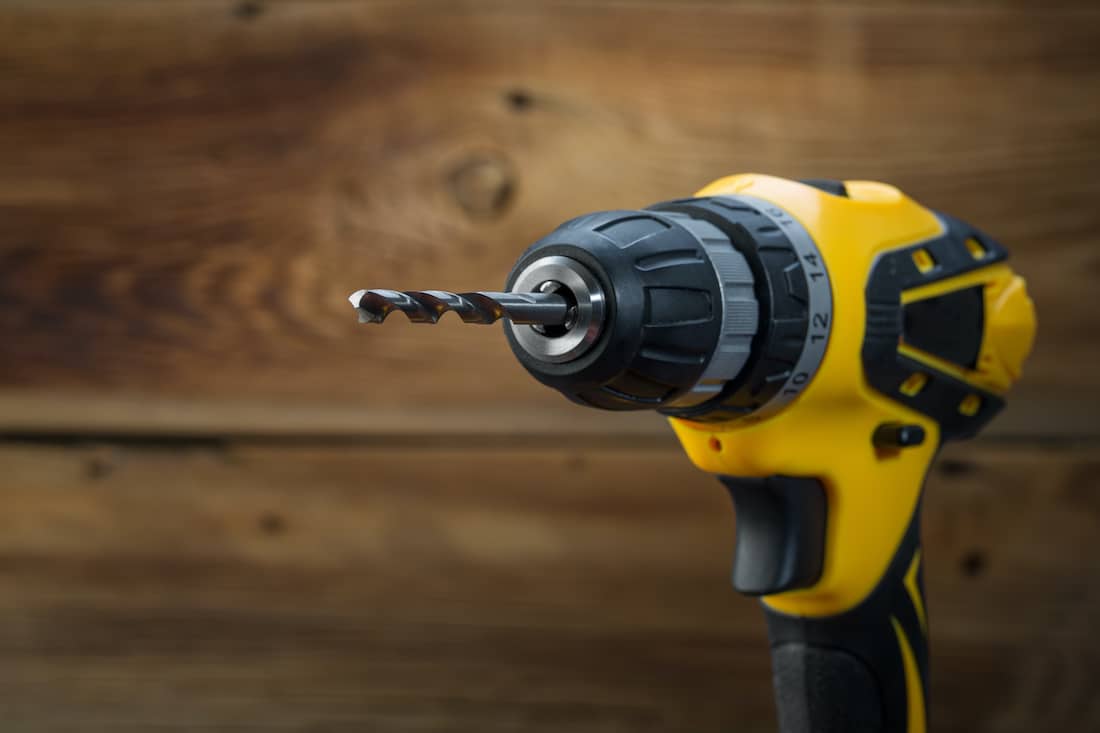
Put a little force into your home maintenance with a power drill. These usually come in their own case or container, so you’ve got a tool that’s easy to store.
Go cordless when looking at power drills. You’ll get the power you need with the portability that makes any space accessible. Make sure though you have a backup battery so one is always charged and ready to go.
(12) Stud finder
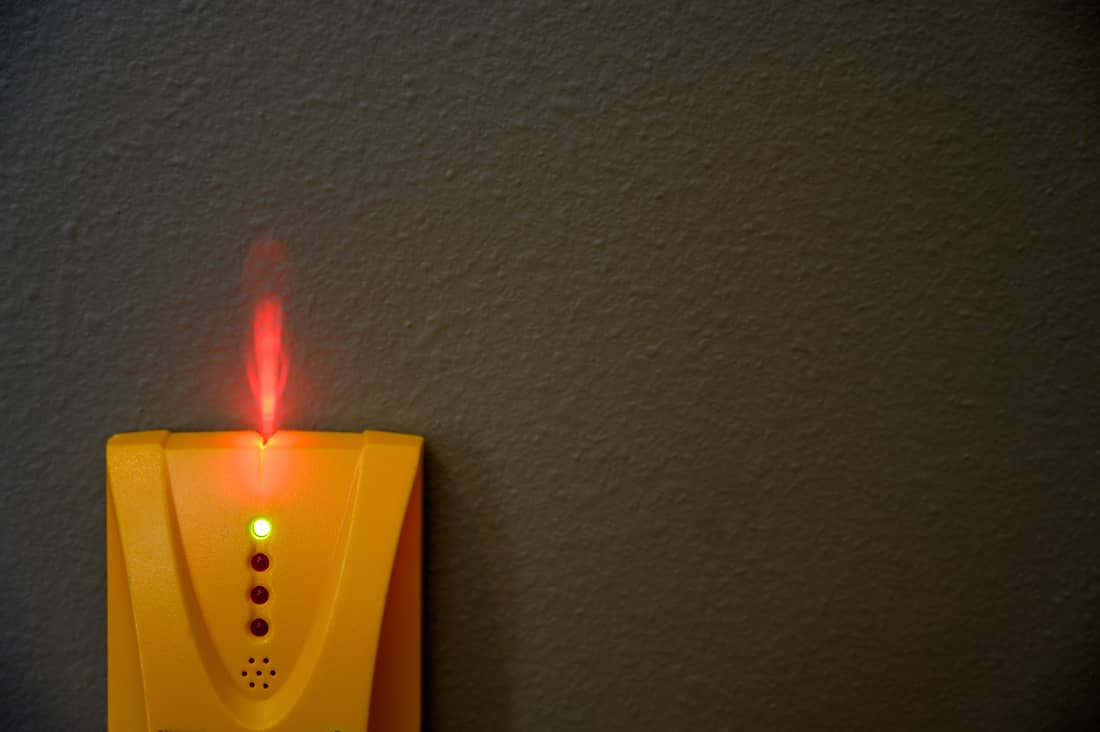
Knowing where the studs are in your home can save you from making unnecessary holes in your walls. If you’re hanging something heavy, or need to secure furniture to the wall to keep it from tipping over, you’ll need a stud. Driving screws or nails into a stud makes your items that much more secure.
A basic stud finder just beeps or lights up when it’s over a stud. Fancier models may also detect wiring, metal objects, rebar, or plumbing hidden behind your walls.
(13) Level
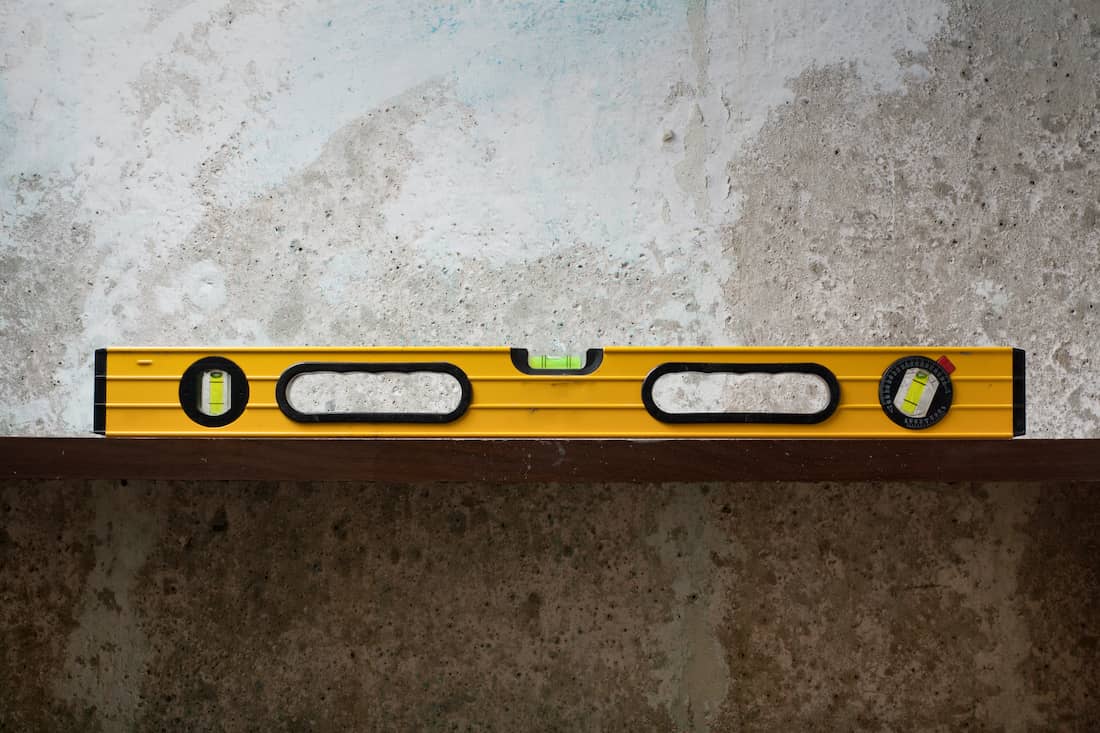
Yes, there is an app on your phone that can transform it into a level, but there’s no replacing the real thing. Even better, a beam level helps you even things out in multiple directions and angles. It also balances on top of picture frames and shelves to make it easier for you to see the floating bubble slide into place.
To line up more than one item on the same wall, a regular level won’t cut it. A laser level, though, projects a beam of light capable of covering a large space. You can use it to line up a series of pictures or smaller shelves to make sure everything is both straight and all at the same height. A more speciality item, if you have to decide between this type of level and a more traditional one, opt for the old school until home projects get more complex.
(14) Pliers and (15) wire cutters
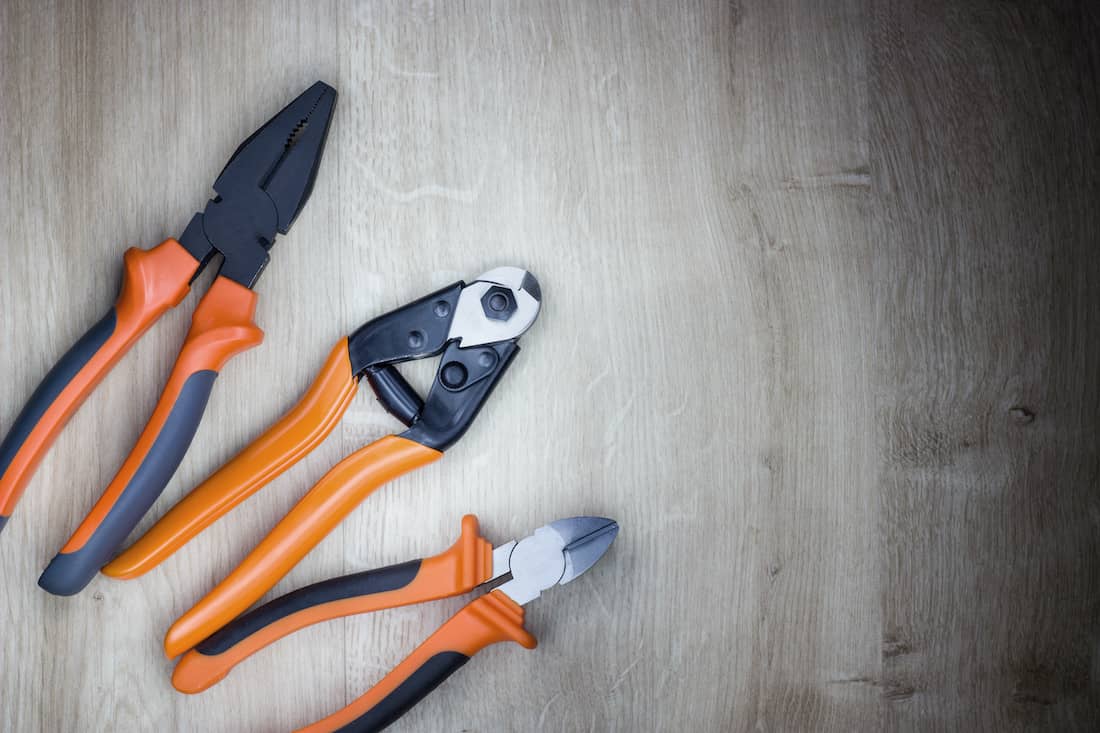
Both of these tools fall into the good-to-have-but-not-always-necessary category. Pliers are great for holding objects firmly while simultaneously bending or tugging. Think of them as the tongs of the tool world. They come in real handy when you get something small stuck, like those wooden dowels used in furniture assembly. It’s possible though, to live the entire time in a home and never need one.
The same is true for wire cutters. Unless you’re working on the electrical wiring of your home, you probably don’t need these. That said, you never know when you’re going `to change an outlet cover, light switch plate, or install a ceiling fan. All these tasks might need wire cutters, although you could easily wait to buy them until a project comes up where they might be useful.
Beyond essential tools: getting the job done right
Having the right tools at home can make all the difference. It can help you maintain your house, and let you do some bigger improvements on your own.
Houses, though, need a lot of upkeep, and there are times when jobs get too big even for the seasoned DIYer. Bringing in a professional can then mean a repair that’s too costly to make. This is especially stressful if you’re trying to get your home ready to sell.
The good news is that you don’t have to fix up your home in order to sell it anymore. With off-market buyers, you have the option to get your home sold without having to stage it or spend money fixing everything up. At Sundae, we act as your concierge and advocate through the selling process. We market your property to hundreds of local, qualified investors, helping you get the highest price possible for your house. Our transparent and seamless process leads you through a hassle-free closing, getting your home sold without it costing out the price of repairs.
Ready to Get Started?
Sell as-is. Pay zero fees to Sundae. Move on your time. No repairs, cleanings, or showings.
